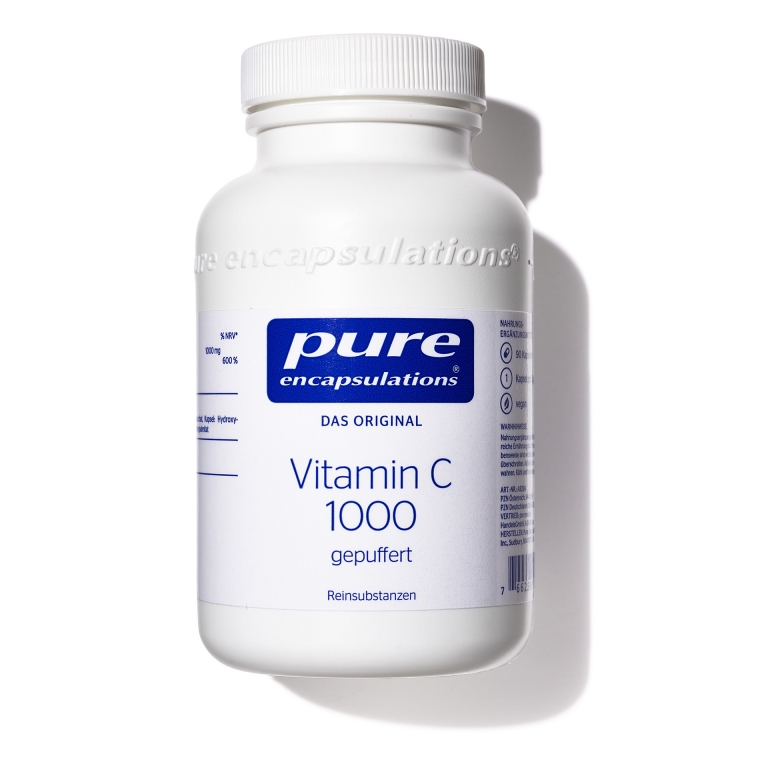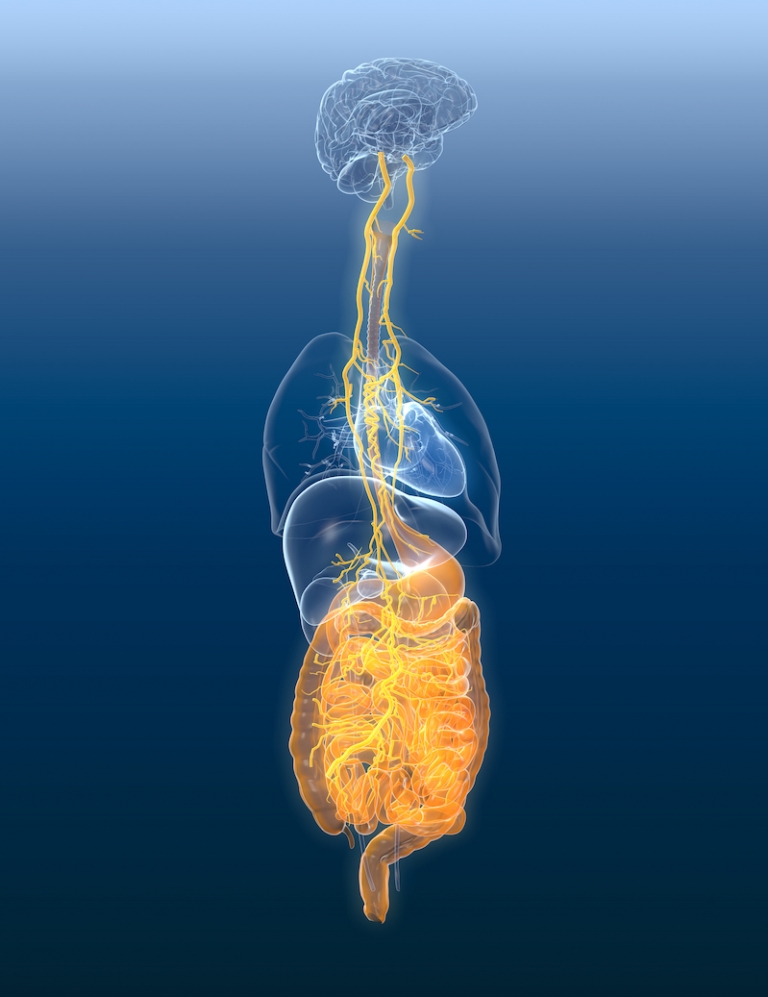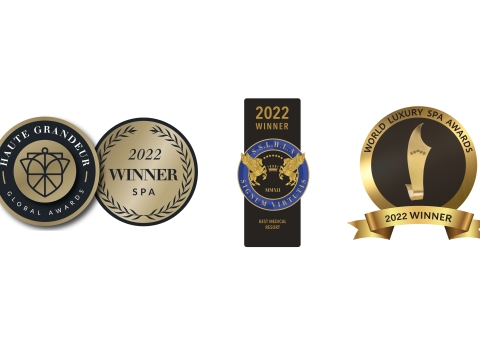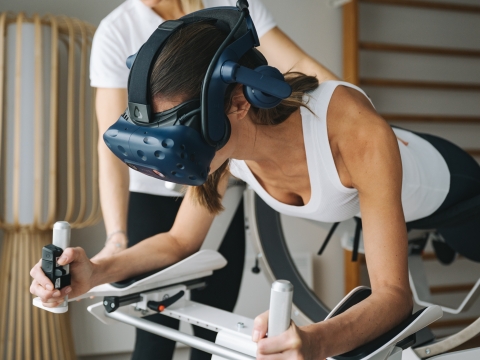Build the immune system properly
The 7 most effective tips for a strong immune system
Our health crucially depends on the strength of our body’s own defenses. There are plenty of effective methods for strengthening the immune system. We’ve compiled all the most important measures in one place, and explain what you really need to pay attention to.
Perhaps you’re familiar with the phenomenon: sometimes you catch a cold easily, while other times you’re miraculously spared? And this despite the fact that you may have been directly exposed to the trigger or carrier? How can this be? The answer is hidden in either the innate or the acquired immune system.
The innate immune system offers very rapid protection against pathogens that are detrimental to our health. It is the first to respond to intruders, and always with the same type of reaction. To put it simply, what this means is: many pathogens, one immune response. This is why it is also described as the non-specific immune system. This can be highly effective and necessary when, for example, bacteria enter the skin through a cut. Within a very short period of time, the non-specific immune system ensures that the intruders are detected and destroyed. On the one hand, this is thanks to the protection offered by the skin and mucous membranes, but immune cells and proteins are also responsible for the immune response. However, the innate immune system also has its limits. The fact that it uses exactly the same response for all intruders means its accuracy is limited. As a result, it is only able to counteract the spread of germs to a certain extent. This is where the so-called acquired immune system, which is also known as the specific or adaptive immune system, comes into play, since unlike the non-specific immune system, it is able to react to specific pathogens in a very targeted manner. Throughout the course of our lives, it gathers numerous experiences with different germs, forming corresponding antibodies each time, so that the next time, it is able to react quickly and effectively. This acquired ability to specifically eliminate pathogens can be set in motion either by an infection or a vaccination.

The gut plays a special role in the context of the specific immune response. For it is proven that a good two thirds of the immune system is located in the gut microbiome. With a surface of 300 to 500 square meters, the intestinal mucosa is the largest boundary surface of the body. In addition, the gut is home to around 100 billion bacterial cells which, in turn, present a wide variety of characteristics. This means that the human gut is home to at least 160 types of microorganisms (including bacteria and fungi, but also viruses). This diversity highlights just how important the intestinal flora is when it comes to the specific immune response. The more diverse the intestinal flora, the more robust the immune system.
In order to strengthen the body’s defenses, therefore, the most pertinent question is how we can support the health of the gut microbiome. This is where our top tips come in:
Tip 1: Fasting as the key to a strong immune system
By now, it’s a well-established fact that a varied diet containing plenty of vegetables, complex carbohydrates, high-quality proteins and healthy fatty acids is crucial for maintaining our health. Yet much less well-known is the fact that deliberately abstaining from food also has health-promoting effects. And this despite a very substantial body of research on the impact of interval fasting. In fact, in 2016, the Nobel Prize was awarded for the discovery of the mechanism that is set in motion by periods of fasting and that strengthens the immune system. We’re talking about autophagy, the body’s self-cleansing process by which damaged cells are broken down into their individual parts and therefore made available for other processes. The longer the digestive system is able to take a break, the more this mechanism gets going, and the more effectively this “clean-up” process is carried out in the body.
Tip 2: Strong defenses thanks to alkaline-based nutrition
Balanced acid-alkaline levels play a major role in our overall health. After all, if there is a predominantly acidic environment in our body, this favors the development of illnesses. To preserve the balance between acids and alkalines in our body, the body makes use of various buffer systems. These ensure the ongoing neutralization of excess acid. For this to happen, it is vital that the kidneys, lungs, blood and liver are functioning properly. The blood, for example, acts as a bicarbonate buffer that stabilizes the pH value. With around 52 percent of the buffer capacity, it plays the largest role in the buffer systems. This system is also referred to as the carbonate/bicarbonate buffer system, and provides the precise chemical reaction necessary to maintain the acid-alkaline balance in the blood at all times.
In healthy adults, the capacity of all buffer systems is so great that the acid-alkaline levels can remain in equilibrium even with an unbalanced diet. However, this will only last until the buffer capacities have been exhausted. To avoid ever letting it get this far, you can have a considerable influence on your acid-alkaline balance through the lifestyle and especially the nutritional choices you make. With every meal, make sure that there is an emphasis on alkaline-based foods. What this means specifically is that your plate should be filled with 70 percent vegetables (= alkalizing). The remaining 30 percent should be made up of protein (= acidifying) and grains (= counteract alkalines).

The foods that help to form alkalines are, above all: vegetables, potatoes, ripe fruit (ideally seasonal and from local organic farming), cold-pressed vegetable oils, fresh herbs and hazelnuts. Milk, cream, pistachios and almonds are pretty much neutral. Acid-generating foods, on the other hand, include meat, fish, pulses, grain-based foods, dairy products such as cheese or quark/cottage cheese, sour tropical fruits like citrus fruits and pineapple, refined oils and fats, walnuts, peanuts and seeds as well as industrially produced foods and beverages. In addition, coffee, alcohol and nicotine are also considered acid-forming. Sugar, products made of white flour and soft drinks, in turn, are examples of foods that act against alkalines.
Looking at this list, it becomes clear how much of an enormous burden our modern way of eating puts on our acid-alkaline balance. If the organism suffers from hyperacidity for an extended period of time, it becomes more susceptible to infections, since the body’s immune cells are unable to work as well in an acidic environment as they are in a relatively neutral setting. Feel free to dig in, therefore, when it comes to alkalizing foods – you’ll be strengthening your immune system in a completely natural, highly effective manner!
And for even more tips for an alkaline-based diet as well as numerous inspiring recipes, check out the new VIVAMAYR cookbook, “Veggie Stars”.
Tip 3: Go for high-quality dietary supplements
It’s no secret that vitamin C, D and zinc strengthen our immune defenses. A frequent source of confusion, however, is the question of what type and quantity of dietary supplements is actually meaningful. In the case of vitamin C, for example, it is worth making sure that it is buffered. This means that in order to improve the tolerability of ascorbic acid (vitamin C), it is bound to an alkaline mineral. This buffers the acid, making the vitamin C pH neutral and thus particularly well tolerated. Furthermore, it should be taken in its pure form, without synthetic additives – and the same is true for all other dietary supplements. “To strengthen the immune system, multiple smaller doses spread throughout the day, e.g. of 500 milligrams each, are advisable.
There’s no danger of overdosing, since if an excess amount of vitamin C were ever to be made available to the body, it is simply eliminated via the urine,” explains VIVAMAYR doctor Dr. Harald Stossier.

Zinc has positive effects on the innate immune system in particular. You can read more here about how this essential trace element prevents viruses from entering the body. Zinc is vital for humans and cannot be produced by the body itself (hence its designation as “essential”). This makes it tremendously important to ensure sufficient consumption via food. Foods rich in zinc include peanuts, corn, oats, oysters, Brazil nuts, lentils and cheeses such as Gouda or Emmental. Beef is also a great source of zinc. Due to its acid-forming properties, however, meat should only be consumed in moderation.
A further important point to consider is that certain foods can inhibit the absorption of zinc in the body; these include foods such as whole grains, seeds, pulses and nuts. These contain what is known as phytic acid, which obstructs the uptake of zinc in the body. Accordingly, it is recommended that you supply the body with these foods in separate meals so as to benefit from the highest possible absorption of zinc.
Vitamin D, when examined more closely, is in fact not a vitamin, but rather the preliminary stage of a hormone. Vitamin D also goes by the name calciferol and is a precursor to the active hormone calcitriol. It plays a major role not only for the health of the skin, but also for our calcium levels (and thus our bone health) as well as our immune system. This is because vitamin D activates the so-called killer cells (macrophages) in the body, which are responsible for fighting pathogens. If too little vitamin D is present, the macrophages – and therefore an important part of the immune system – are inactive. “To strengthen our immune defenses, generally speaking, a dosage of 1,000 units per 10 kilograms of bodyweight per day is recommended,” advises Dr. Stossier.
Tip 4: Relaxation boosts the immune system
To provide an overall boost to the immune system, take time for true relaxation on a regular basis. Enjoy a massage, meditate, do yoga or practice autogenic training. No matter which relaxation technique you decide on, what’s important is to bring calm to your autonomic nervous system. Other supposed methods of relaxing, such as your favorite (heavy) meal or sweet treats, smoking or alcohol, are taboo. These have a stimulating effect on the nervous system, thus counteracting any true relaxation of the organism.
Tip 5: Cuddling increases the body’s own defenses
Make sure to squeeze in lots of cuddles with your loved ones! This activates what is known as the “cuddle hormone”, oxytocin, in the body, which subsequently strengthens the immune system. Why? “It has been proven that the gut contains an abundance of oxytocin receptors. The release of oxytocin allows good gut bacteria to develop and the intestinal mucosa to regenerate. Every form of affectionate physical contact has this effect and therefore enhances our immune defenses,” explains Claudia Kohla, psychologist at VIVAMAYR.

Tip 6: Use movement to strengthen your immune system
Movement – no matter what form it takes – involves a whole host of effects that help to keep the body, mind and spirit healthy. Moderate types of movement such as tai chi, yoga and qi gong result in a twofold benefit: on the one hand, they provide gentle strengthening and an improvement in mobility, and on the other, they are incredibly effective at a psychological level, since they relax our entire system. This is thanks to the vagus nerve, the tenth cranial nerve, which on its way from the head to the stomach wraps around almost all organs, ultimately leading to the enteric nervous system, the nervous system of the gut. The vagus nerve is part of the parasympathetic nervous system, which is responsible for the relaxation of our systems. The gut, in turn, is best able to do its job when in a relaxed state. So while passive relaxation sessions (massages, osteopathy and so on) stimulate the production of oxytocin, active relaxation sessions have an especially calming and regenerative effect on the digestive system via the vagus nerve. It’s not without reason, therefore, that both types of relaxation are taken into consideration as part of the VIVAMAYR programmes. They support gut health, strengthen the immune defenses and promote detoxification.
It goes without saying, however, that challenging physical training sessions are also worthwhile when it comes to our health and fitness. Although they initially have a dampening effect on the immune system, in the course of the subsequent regeneration they help to strengthen our defenses beyond their starting point.
Tip 7: Cleansing the colon to boost immunity
The modern lifestyle presents a great challenge for our immune system. It is often only with difficulty that we are able to integrate easily digestible meals, sufficient movement and relaxation into our everyday lives – yet it is possible. Try to structure your meals in accordance with the adage “eat breakfast like a king, lunch like a prince, and dinner like a pauper”, and you’re already well on your way to doing a world of good for your gut health. More detailed information is available in our podcast episode “What should a ‘day of eating’ look like?” with VIVAMAYR nutrition expert Kathrin Pötsch, BSc. You should also avoid raw food after 4 pm. Eating raw food after this time puts unnecessary strain on your digestive system and impairs regeneration during sleep.
No matter how well you are already able to lead a healthy lifestyle, a colon treatment always strengthens your immune defenses. It entails a comprehensive regeneration of the digestive system, and is therefore accompanied by a real slowing down of both mind and spirit. For precise, rapid results, it is advisable to seek out experts in this treatment.
With VIVAMAYR, you have the option to have the necessary examinations carried out even before your stay, so that you can get started with the actual program as soon as you arrive at one of the VIVAMAYR Health Resorts. Not yet sure which program is right for you? Inquire at our locations! We’ll be happy to advise you!

Sources
Barghorn Leonie, 19.11.2019, Phytinsäure: Was du über den Pflanzenstoff wissen musst [Phytic acid: What you need to know about this plant substance], accessed 8.11.2021, 15:42
Clanner-Engelshofen Benjamin, 18.11.2017, Calcitriol, accessed 8.11.2021, 11:03
Fischer Emanuela, Mühlbacher Stefan, 2021, Gemüsestars – Das VIVAMAYR Kochbuch [Veggie Stars – The VIVAMAYR Cookbook], 1st edition, Brandstätter Verlag, Vienna
N.p., n.d., Food chart, accessed 8.11.2021, 15:44
N.p., n.d., Wir sind besiedelt: Darmbakterien beeinflussen unsere Gesundheit [We are populated: Gut bacteria influence our health], accessed 3.11.2021, 16:49
Rudolf-Müller Eva, 28.9.2017, Darmflora [Intestinal flora], accessed 3.11.2021, 16:15
N.p., 30.6.2016, Zinkanreicherung gleicht Mangel nicht aus [Enrichment with zinc does not offset deficiency], accessed 8.11.2021, 14:21
N.p., n.d., Der pH-Wert und das Puffersystem [The pH value and the buffer system], accessed 8.11.2021, 16:06
N.p., n.d., Krankheiten durch Übersäuerung | Überblick, Prävention & Tipps [Illnesses caused by hyperacidity | Overview, prevention & tips], accessed 8.11.2021, 15:15
Stossier Harald, Stossier Georg, 2018, Ernährung – Worauf es wirklich ankommt [Nutrition – What really matters], 1st edition, Verlagshaus der Ärzte, Vienna
Wikipedia, 5.3.2021, Kohlensäure-Bicarbonat-System [Bicarbonate buffer system], accessed 8.11.2021, 13:54











